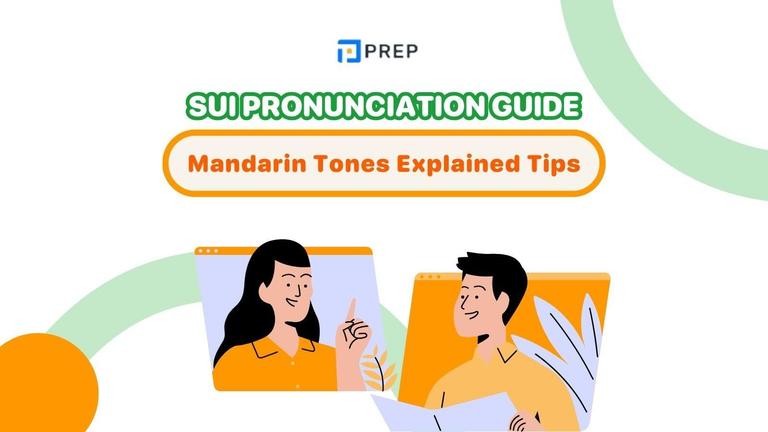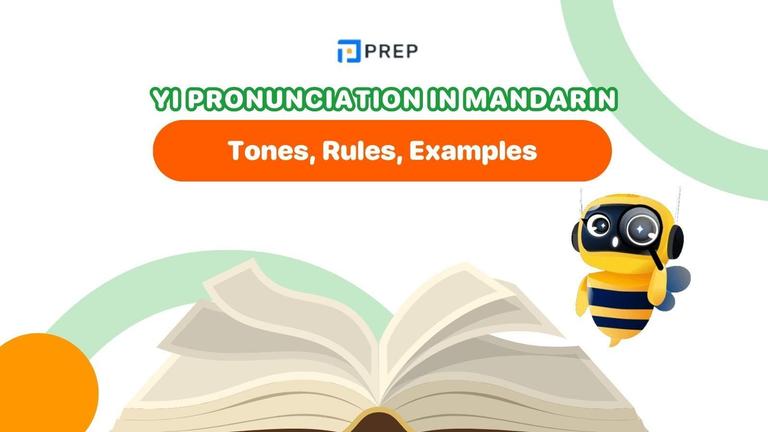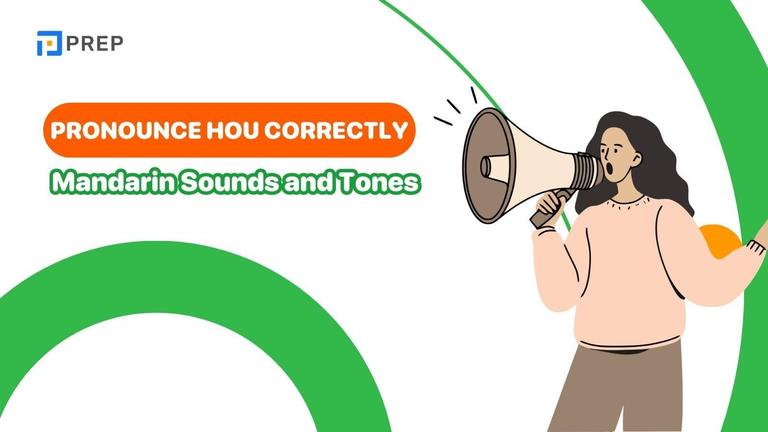9+ English vocabulary books by proficiency level
This comprehensive guide presents 10+ carefully curated english vocabulary books organized by proficiency levels (A1-C2), featuring authoritative resources from Cambridge, Oxford, and Merriam-Webster. The content systematically addresses vocabulary development from basic foundations through advanced academic terminology, including Oxford Word Skills Series for beginners, English Vocabulary in Use series for progressive development, Word Power Made Easy for etymology-based learning, specialized IELTS/TOEFL preparation books, and advanced academic resources.
The guide integrates traditional book-based learning with modern digital platforms like PREP's structured vocabulary courses across basic (10 topics), intermediate (17 lessons), and advanced (18 lessons) levels, providing comprehensive learning methodologies including active engagement, spaced repetition, and contextual application strategies.
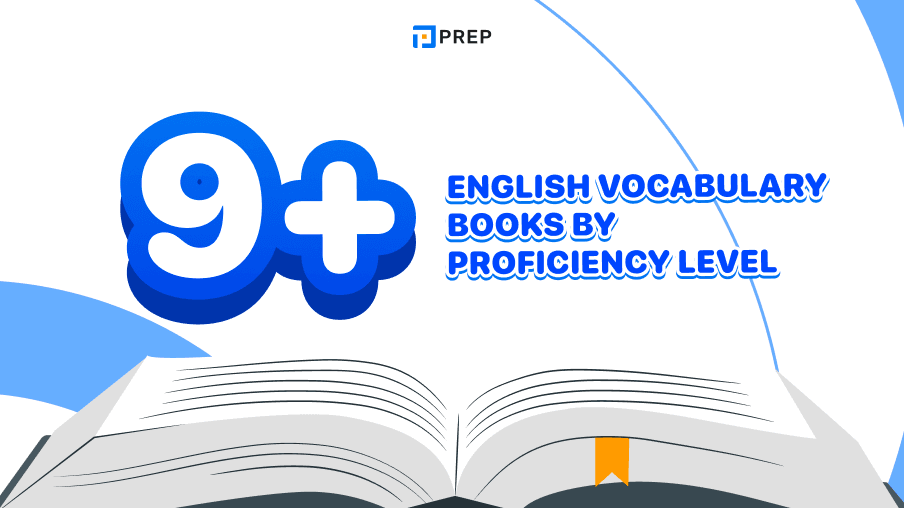
I. English Vocabulary Books for Basic Level
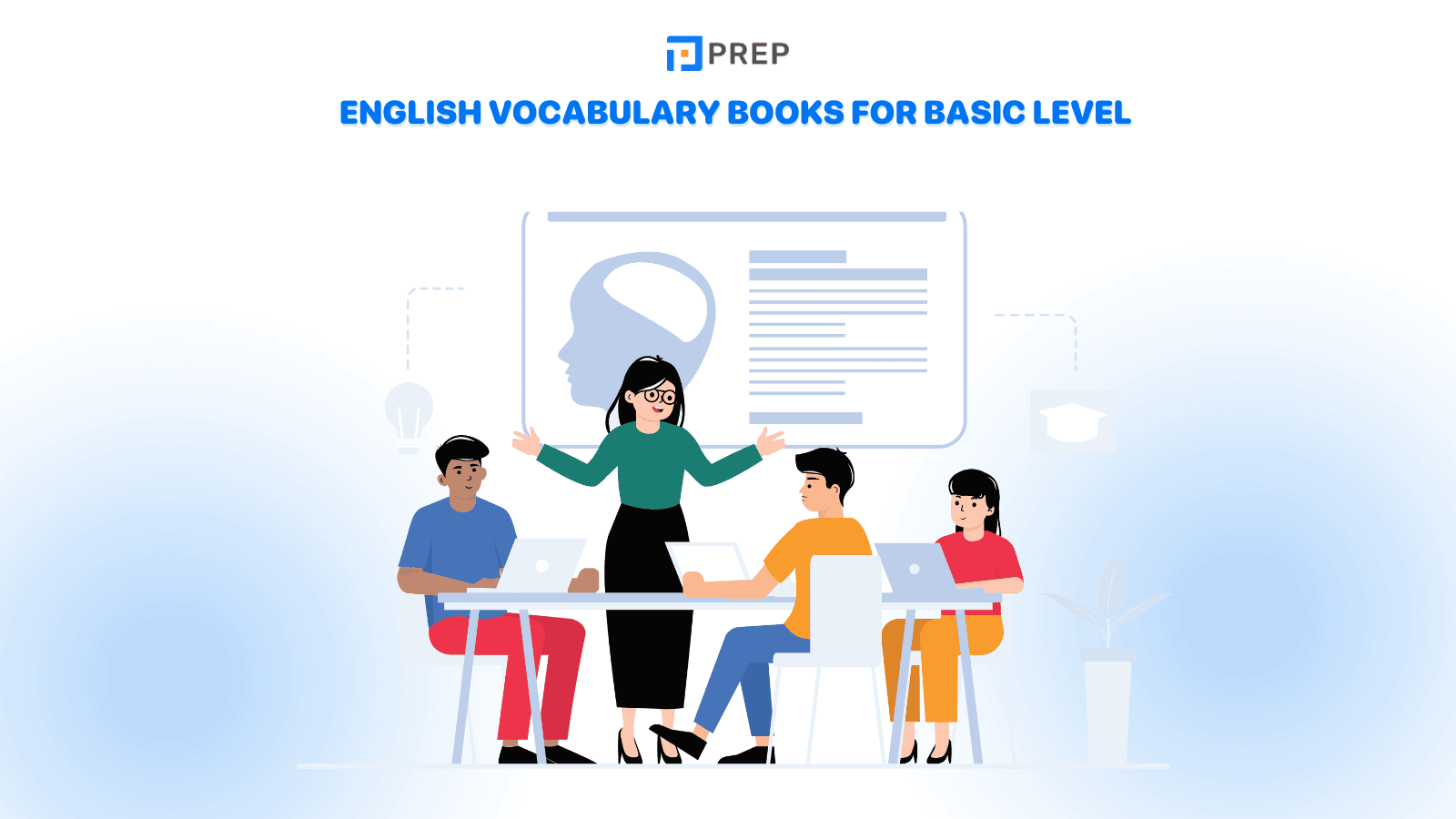
At the basic level, the main focus is to familiarize yourself with common and simplest vocabulary topics and groups. Here are 3 English vocabulary books for the basic level that you can refer to:
1. 360 Irregular Verbs
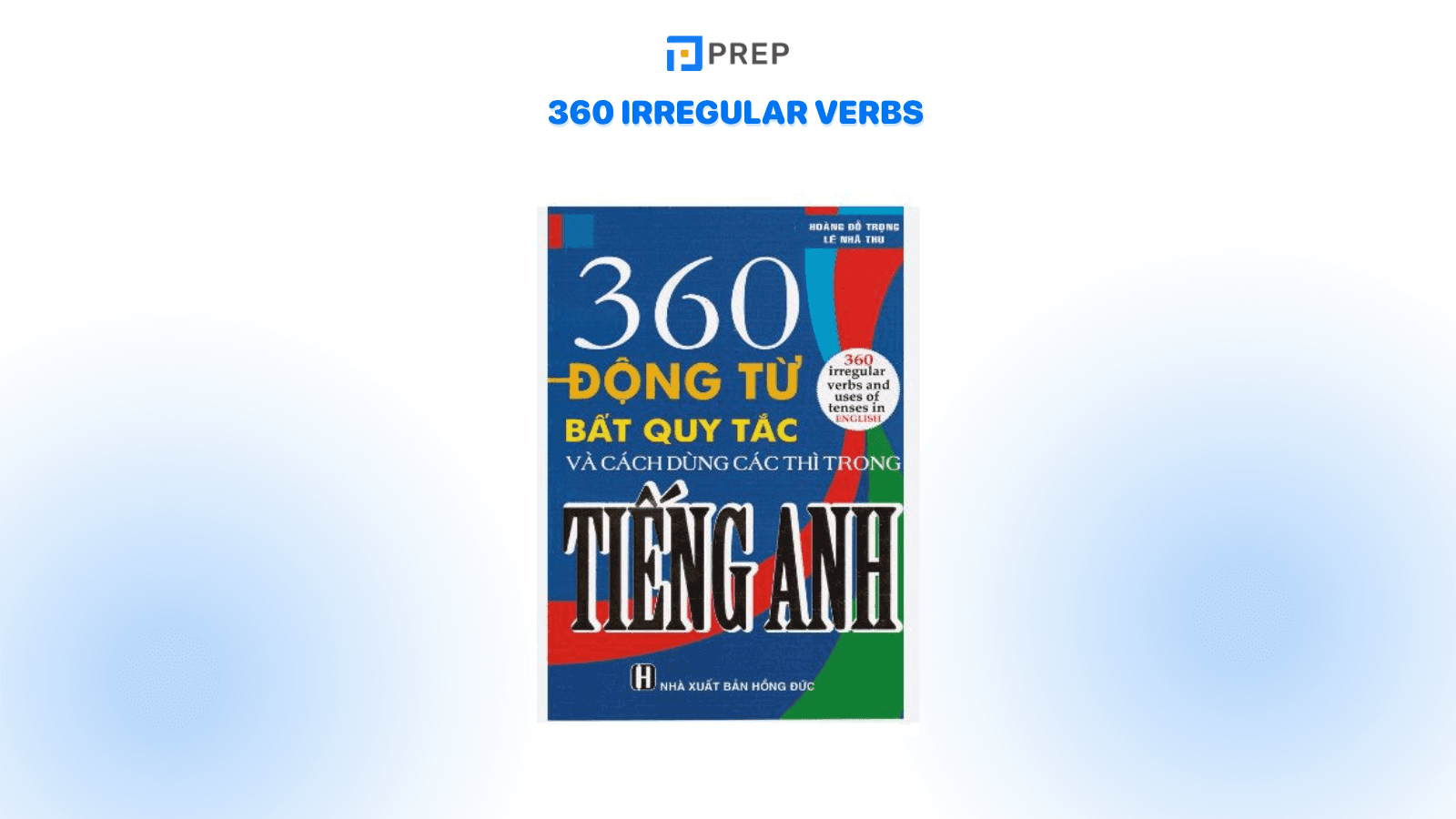
"360 Irregular Verbs" is a resource that provides learners with 360 vocabulary words of irregular verbs. Knowledge related to irregular verbs is crucial and greatly affects verb conjugation in different tenses. Therefore, it's important to grasp this group of words.
|
Advantages |
Disadvantages |
|
The tables of irregular verbs in the book are easy to read, understand, and include pronunciation and translations. |
However, there are no specific examples or usage contexts for each word, so the application may be limited. |
2. Oxford Word Skills Series
The Basic level Oxford Word Skills series establishes essential vocabulary foundations through contextual learning approaches that emphasize practical application over rote memorization. This comprehensive resource integrates audio support for pronunciation development while targeting absolute beginners (A1) to elementary (A2) learners who require systematic vocabulary building for everyday communication scenarios.
|
Advantages |
Disadvantages |
|
|
3. English Vocabulary in Use - Elementary
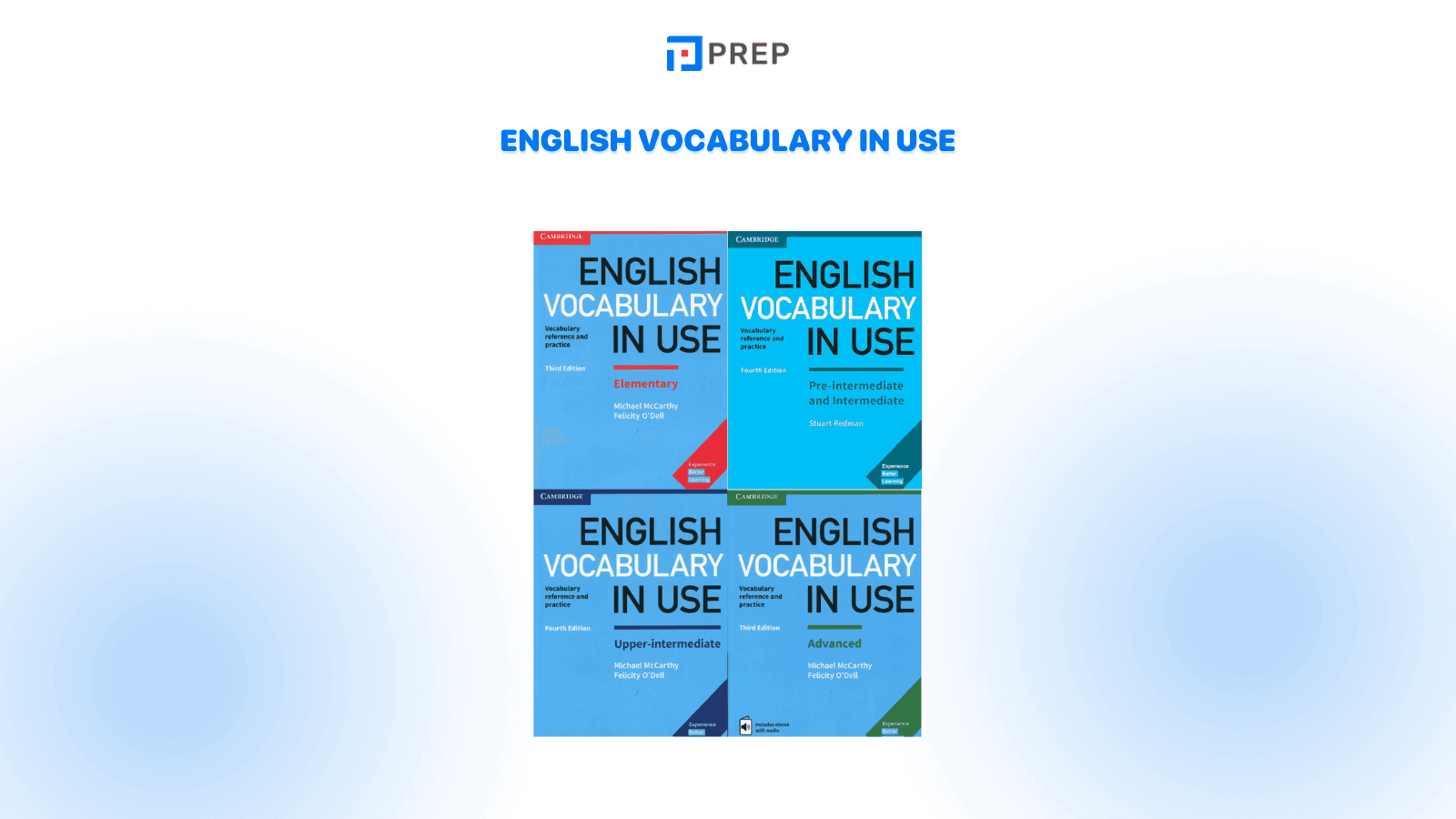
This is a vocabulary book for those who are starting to build their basic vocabulary. "English Vocabulary in Use - Elementary" consists of 60 lessons, each corresponding to a familiar vocabulary topic such as weather, animals, people, school, etc. With 60 topics, the book provides up to 2000 basic English vocabulary words for learners. Additionally, the "Vocabulary in Use" series also includes exercise systems and answer keys for immediate practice.
|
Advantages |
Disadvantages |
|
|
4. Word Power Made Easy
This influential classic teaches vocabulary through etymology exploration, revealing connections between word roots, prefixes, and suffixes that form English vocabulary patterns. The methodology empowers learners to decode unfamiliar words independently, significantly expanding lexical comprehension through understanding structural principles.
|
Advantages |
Disadvantages |
|
Root-based approach provides tools for ongoing vocabulary acquisition |
Intensive methodology requires significant dedication |
|
Helps understand complex word relationships and meanings |
May feel overwhelming for simple memorization preferences |
|
Engaging exercises and comprehensive quizzes reinforce learning |
Analytical approach doesn't suit all learning styles |
|
Builds sustainable, long-term vocabulary development skills |
Requires consistent note-taking and review for effectiveness |
At the basic level, most of the vocabulary is already familiar. Therefore, during the learning process, it's recommended to prioritize applying the knowledge from these English vocabulary books in conversations or when naming objects and phenomena you encounter daily.
II. English Vocabulary Books for Intermediate Level
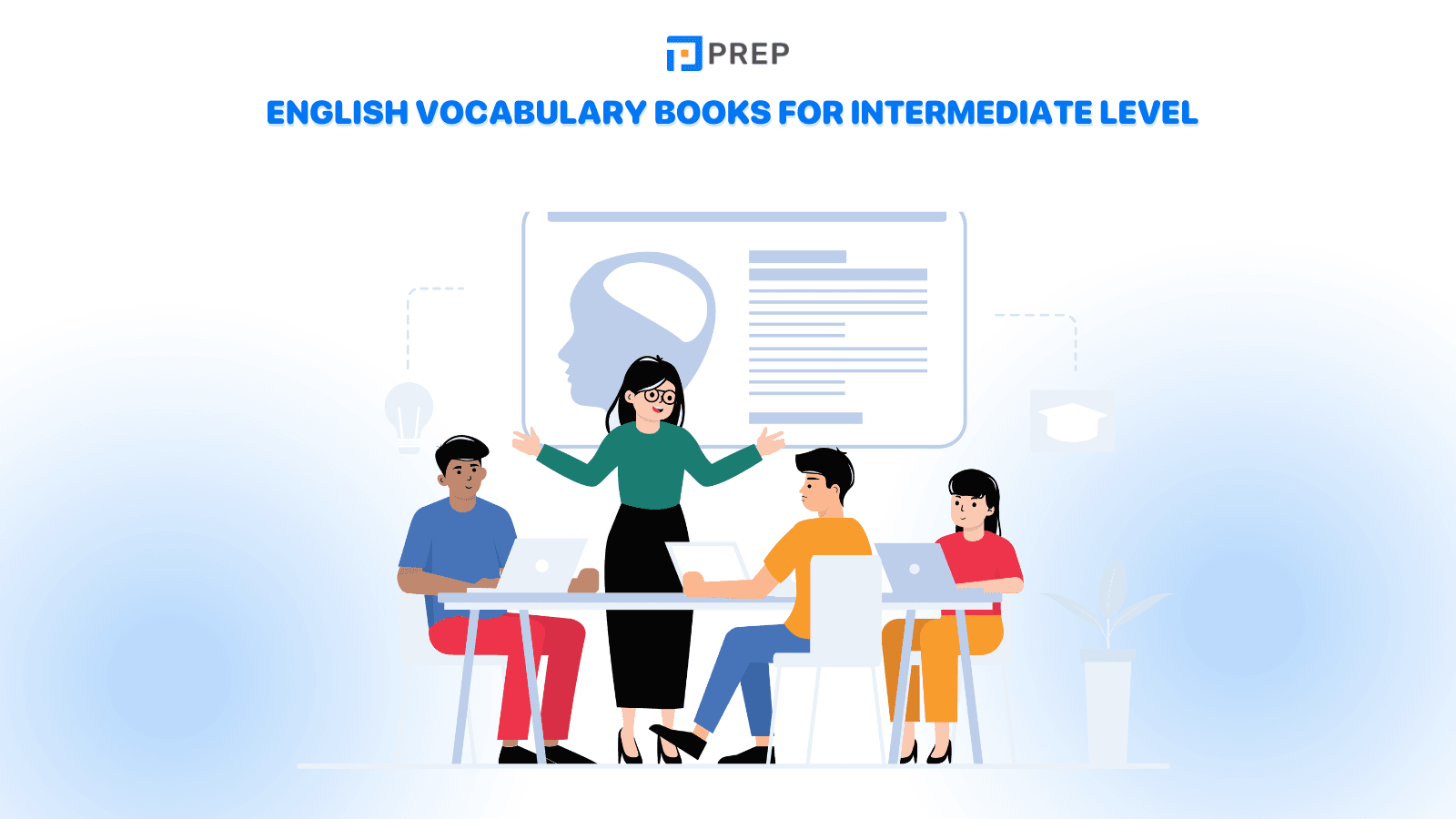
At the intermediate level, you can enhance your vocabulary through the following books:
1. Destination B1 and B2
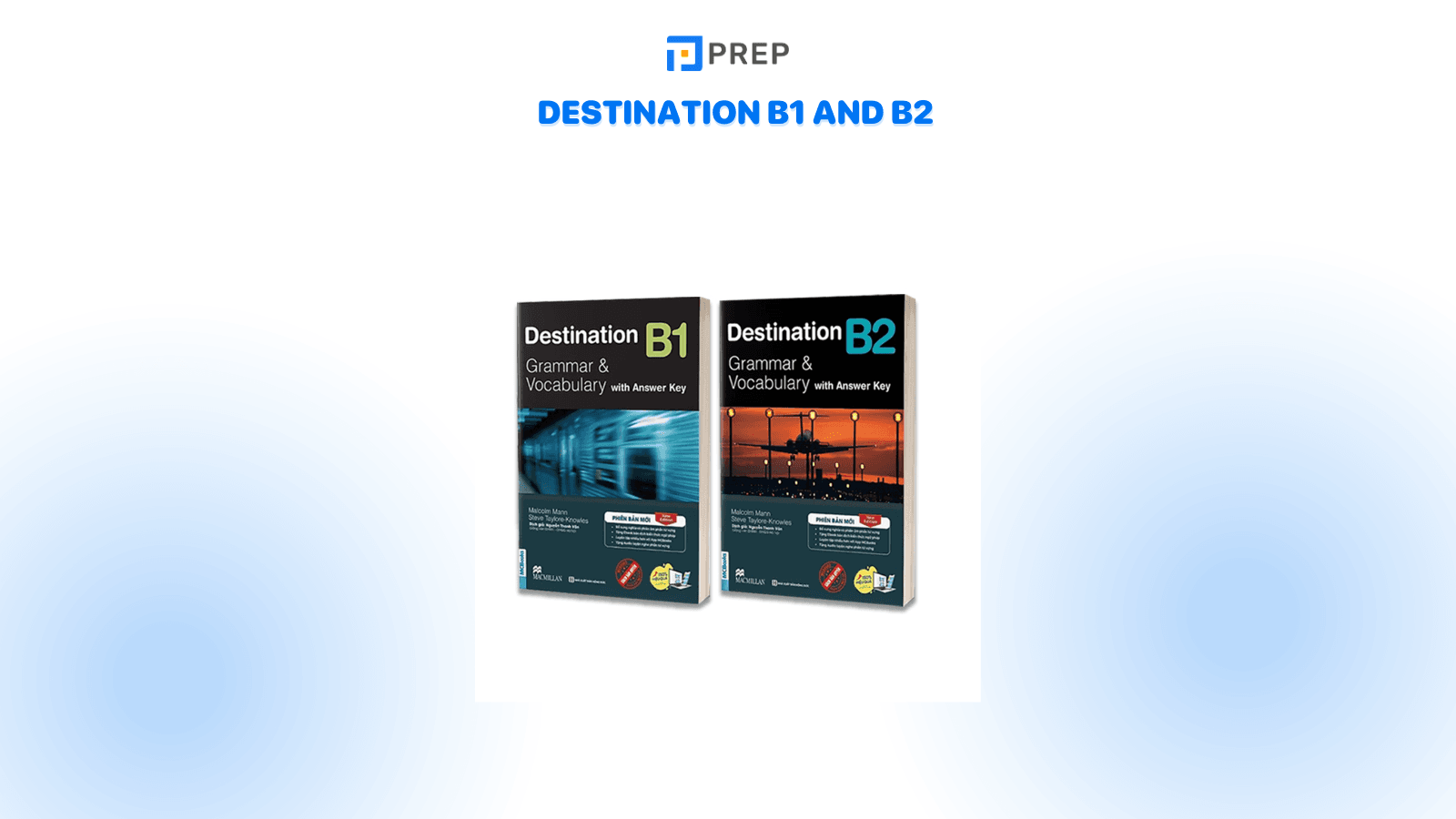
"Destination B1" and "Destination B2" vocabulary books provide learners with vocabulary and grammar for the intermediate level.
-
"Destination B1" consists of 42 lessons, 14 review lessons, and 2 progress lessons for practice. The book combines grammar and vocabulary lessons, allowing learners to acquire vocabulary and apply it immediately in grammatical expressions.
-
"Destination B2" has 28 lessons, with increasing difficulty, alternating between grammar and vocabulary lessons. Additionally, the book includes review sections and shares information on irregular verbs, phrasal verbs, connectors, and more.
|
Advantages |
Disadvantages |
|
|
2. Cambridge Vocabulary for IELTS
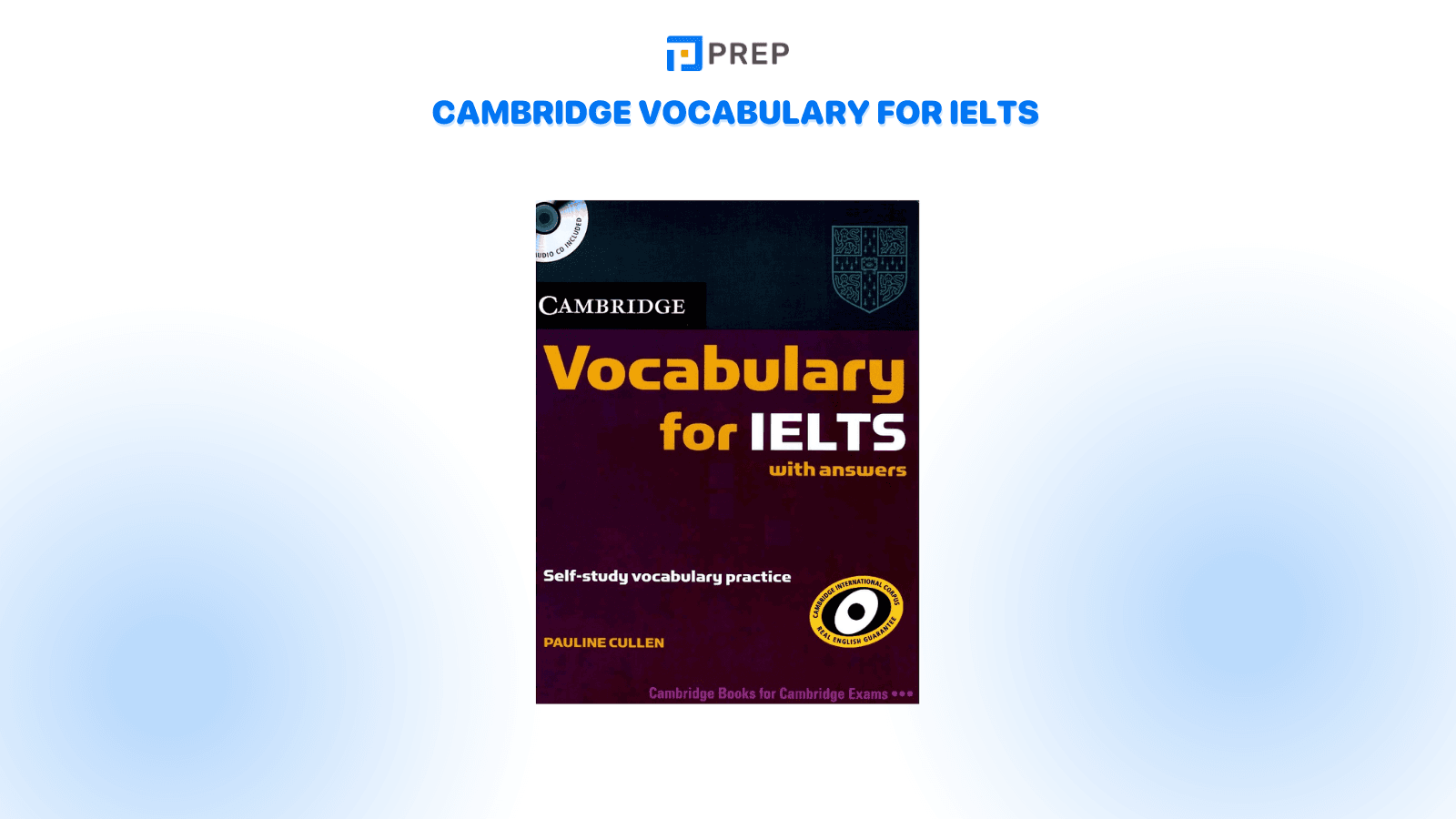
"Cambridge Vocabulary for IELTS" is a vocabulary book designed for IELTS test preparation. It consists of 25 lessons that focus on common topics in the IELTS exam, such as health, education, etc. Each topic in the book corresponds to vocabulary related to the four skills: Listening, Speaking, Reading, and Writing. Furthermore, learners can access tips and strategies for effective IELTS test-taking through the test tips provided in each lesson.
|
Advantages |
Disadvantages |
|
|
3. IELTS Vocabulary Booster
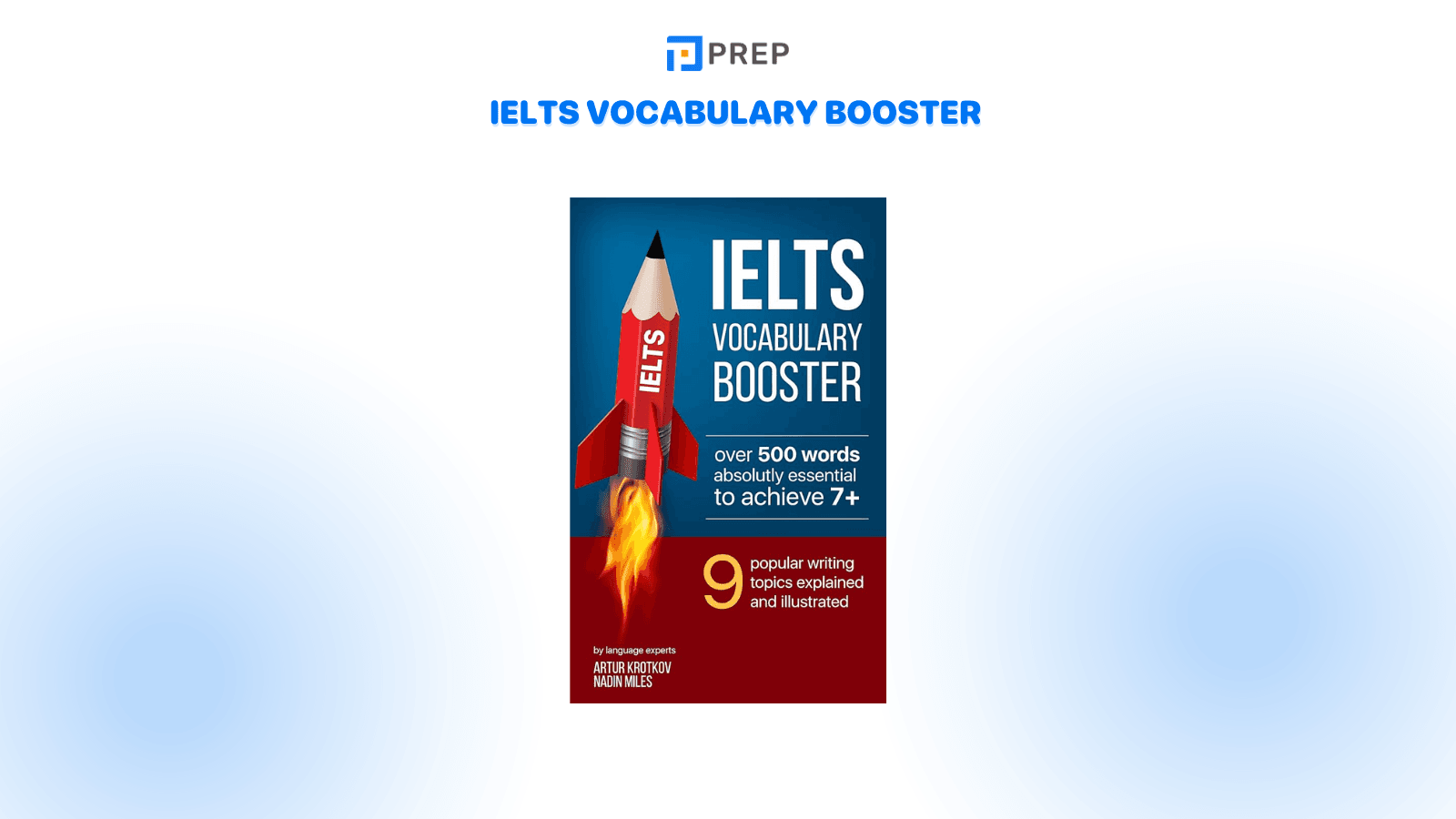
"IELTS Vocabulary Booster" is a vocabulary book specifically designed for IELTS test preparation. It focuses on vocabulary related to various topics tested in the IELTS exam. The book includes exercises and examples to help learners expand their vocabulary in an IELTS context.
|
Advantages |
Disadvantages |
|
|
To study according to the English vocabulary books mentioned above, you need to be proactive and apply what you learn in practice and exercises to achieve the best results.
III. English Vocabulary Books for Advanced Level
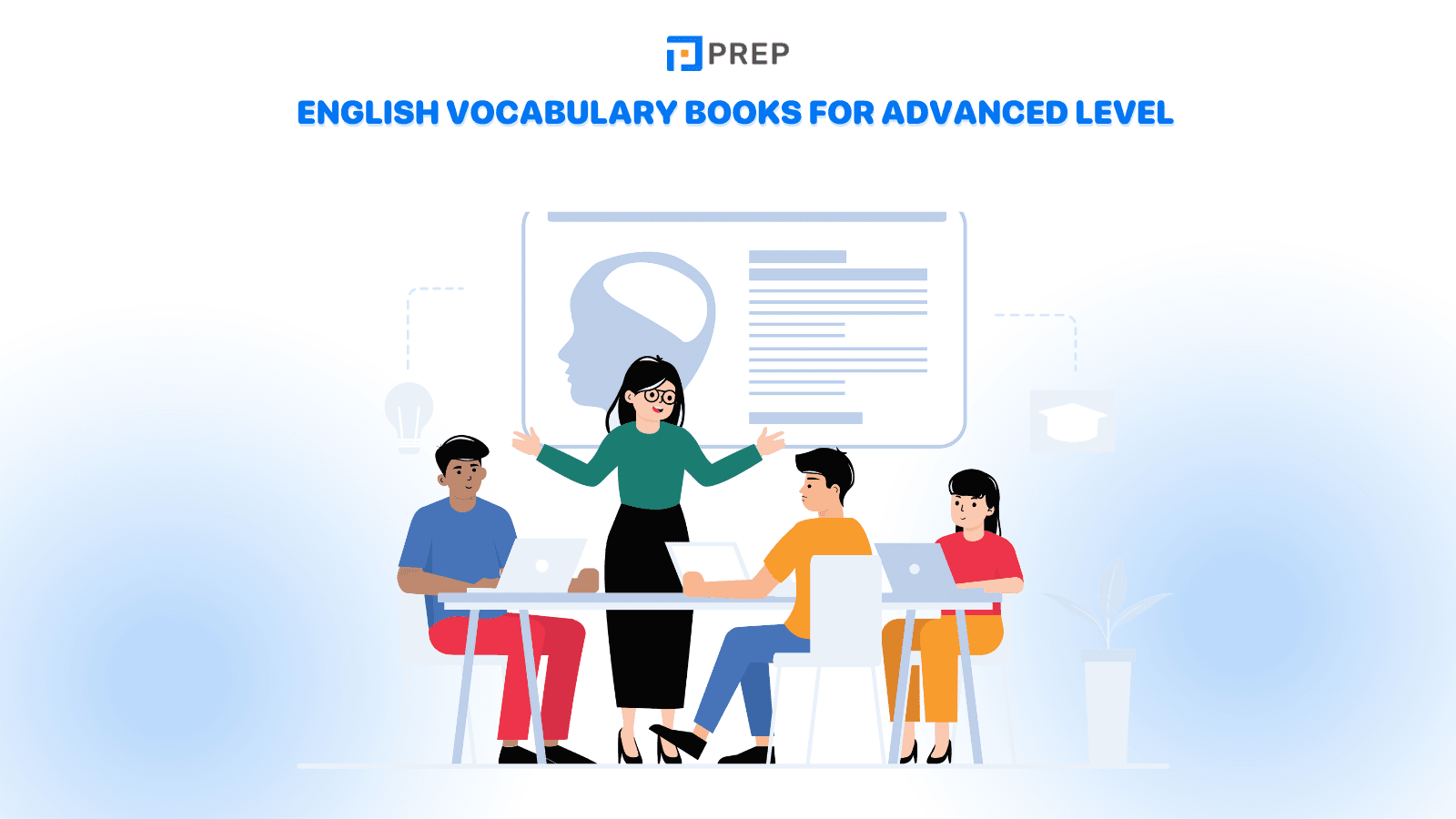
At the advanced level, you can refer to the following classic English vocabulary books:
1. The Vocabulary File C1, C2
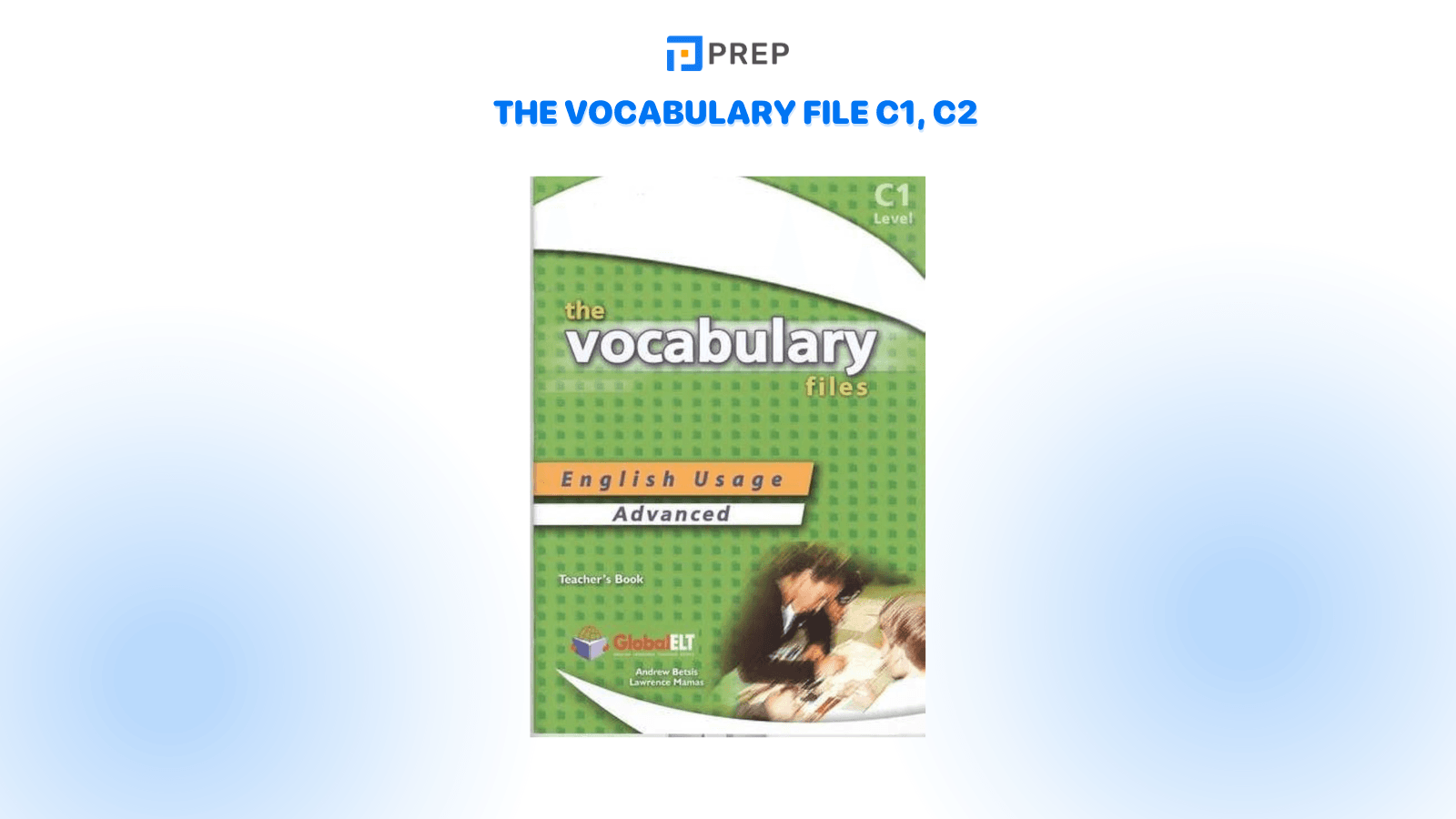
"The Vocabulary File C1, C2" is a vocabulary book designed for learners at band 5-7+. The book provides vocabulary with detailed explanations and specific usage. It consists of three sections:
-
Word in action: This section analyzes vocabulary by topic and connects vocabulary systematically.
-
Vocabulary Development: This section helps you expand your vocabulary and improve your usage to achieve higher scores in exams, particularly on band 6.0.
-
Vocabulary Practice: This section provides exercises that allow you to practice and apply the advanced vocabulary you have learned.
|
Advantages |
Disadvantages |
|
Specific vocabulary and exercises provide effective practice. |
Limited visual presentation and less appealing design. |
2. Academic Vocabulary In Use
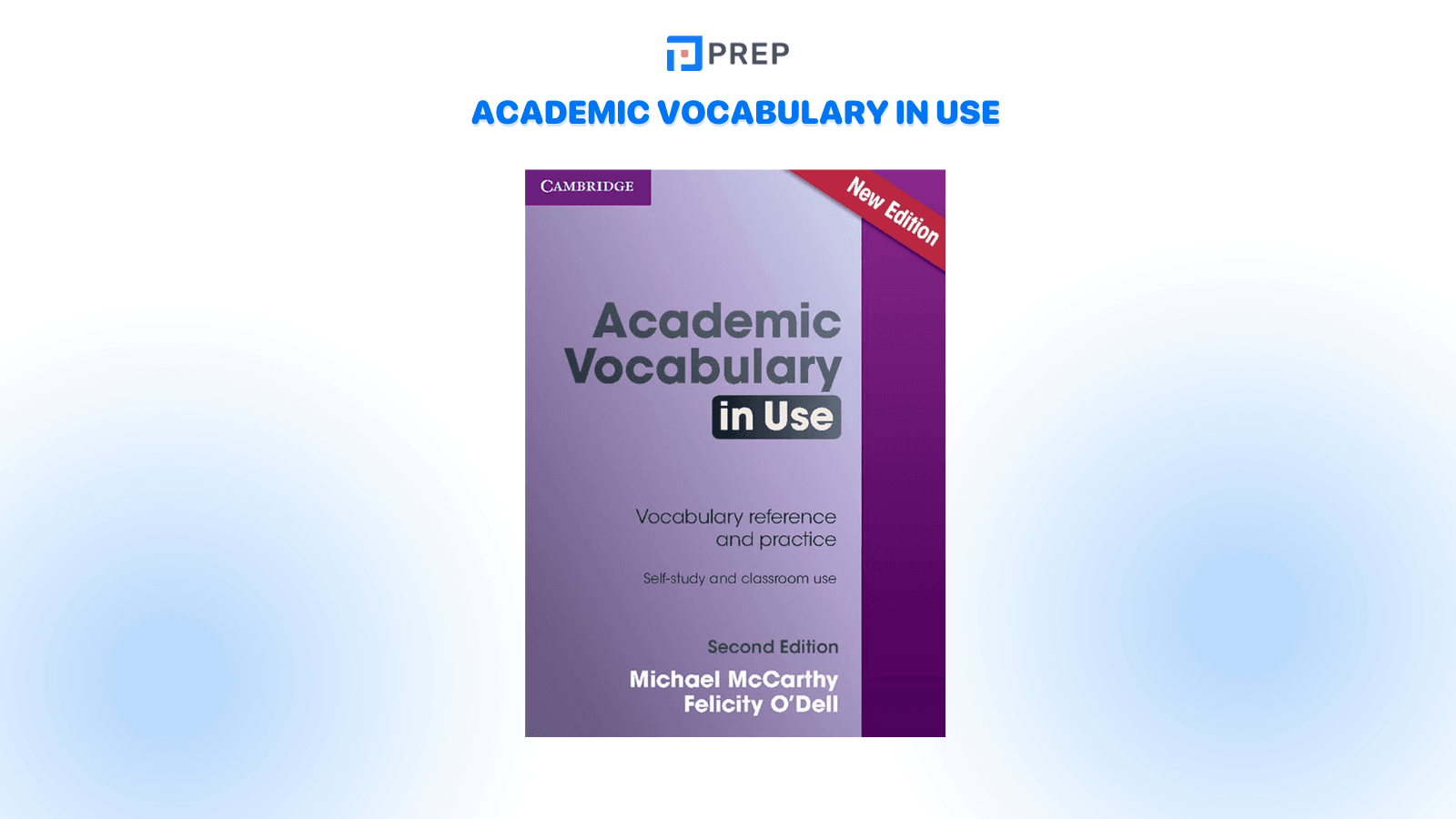
"Academic Vocabulary In Use" is a vocabulary book published by Cambridge University, primarily focusing on academic vocabulary for those who need vocabulary for practicing writing skills. The book guides learners on how to use vocabulary for various purposes, such as communication, tests, and exams. Additionally, it includes tests for learners to apply the vocabulary in practical situations.
|
Advantages |
Disadvantages |
|
Clear division into sections: vocabulary provision, instructions on combining and using vocabulary in real-life situations, exercises, and a comprehensive system of tests with detailed answers. |
The vocabulary is highly academic and may not be suitable for all learners. |
3. Destination C1, C2
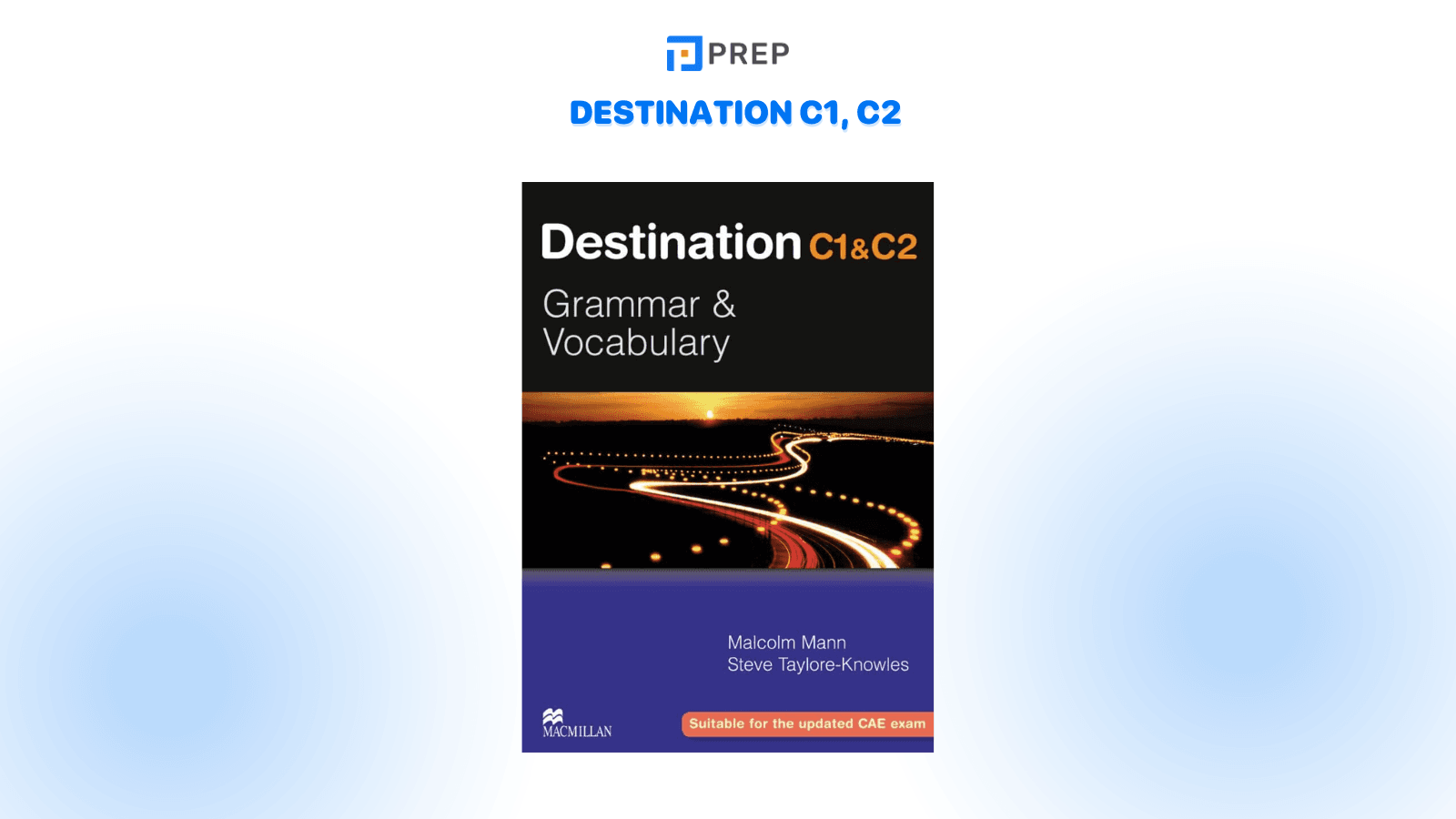
"Destination C1, C2" is an English vocabulary book in the Destination series, designed to help learners improve and refine their vocabulary and grammar skills to achieve scores above 7.0. It comprises 26 lessons, with 13 grammar and 13 vocabulary lessons. Additionally, there are 13 review tests and 2 Progress Tests to help learners apply their knowledge to practical exercises.
|
Advantages |
Disadvantages |
|
|
4. Vocabulary Builder by Merriam-Webster
This authoritative resource from renowned lexicography experts utilizes Latin and Greek roots to develop sophisticated English vocabulary understanding and retention. The challenging content includes rigorous quizzes and comprehensive tests designed for academic and professional contexts requiring precise, nuanced expression.
|
Advantages |
Disadvantages |
|
Sophisticated academic vocabulary focus for advanced contexts |
Challenging content may overwhelm below-advanced learners |
|
Trusted root-based learning approach ensures systematic understanding |
Information density requires focused, dedicated study sessions |
|
Rigorous reinforcement exercises consolidate learning effectively |
Limited applicability for everyday conversational vocabulary |
|
Authoritative Merriam-Webster brand guarantees lexicographical accuracy |
Analytical approach may not suit all learning preferences |
The above is a compilation of the best English vocabulary books from basic to advanced levels that you can consider and choose according to your proficiency level.
IV. Tips for Effective English Vocabulary Learning through Books
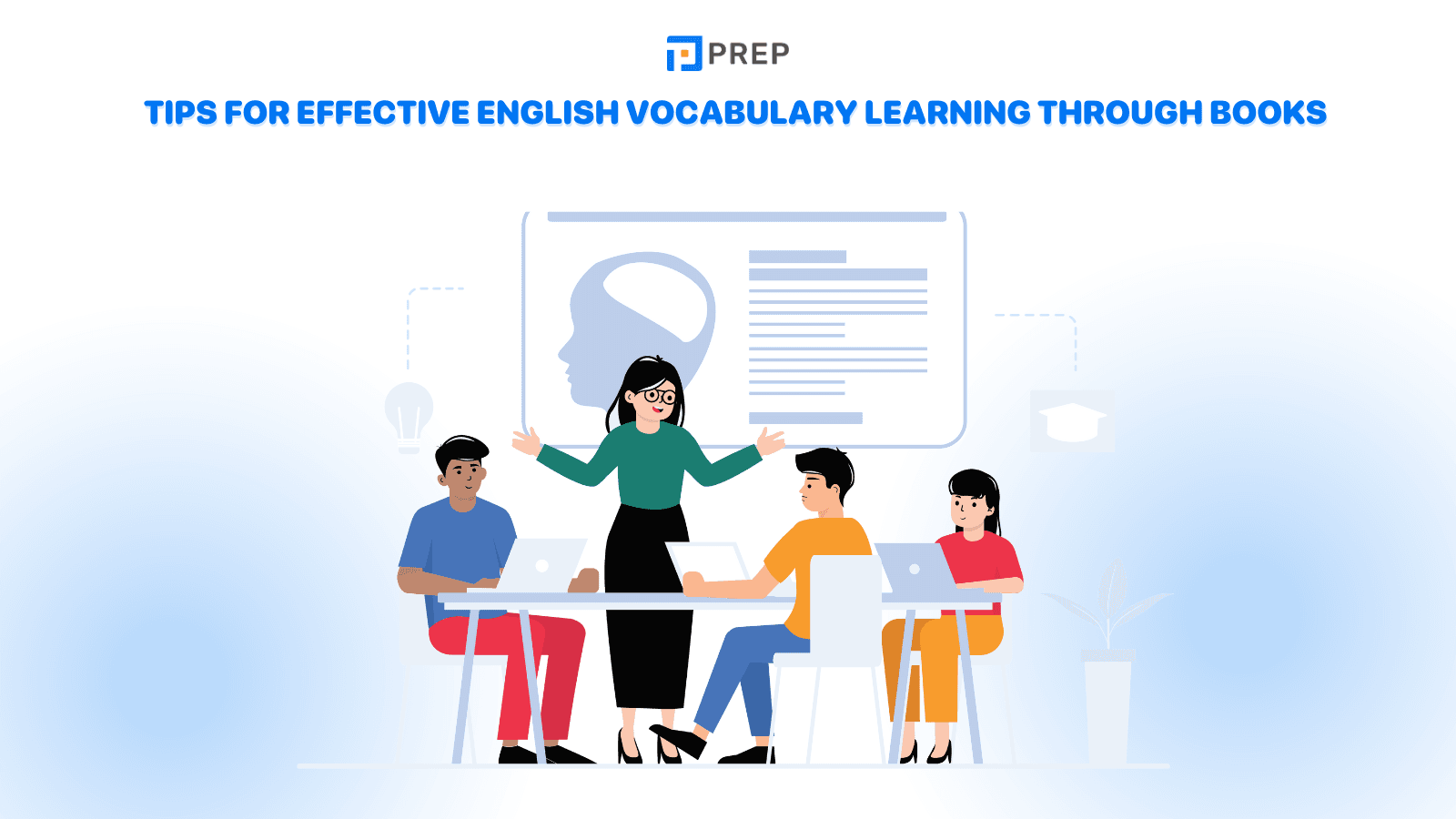
Selecting the perfect english vocabulary books represents only the beginning of your vocabulary development journey; the real transformation occurs through strategic, consistent application of proven learning methodologies that maximize retention and practical usage.
1. Learn through Mind Maps
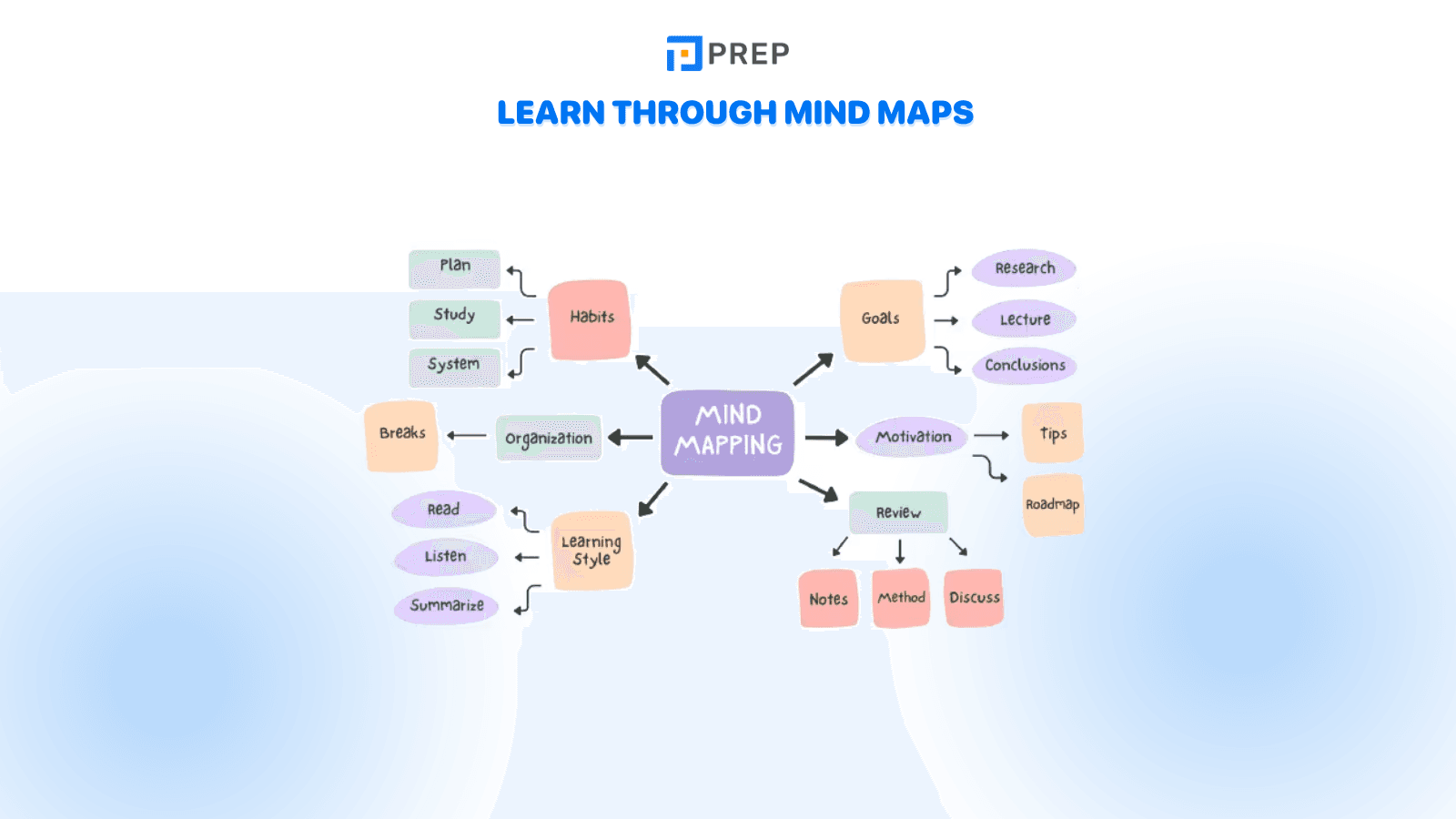
When approaching English vocabulary books by topic, you can use the method of learning through mind maps. Learning vocabulary through mind maps helps you have a comprehensive understanding and better retention. During the process of creating mind maps, it's recommended to include illustrative examples to optimize your ability to apply the vocabulary effectively. For example, here's a mind map on the topic of Health:
2. Use and apply vocabulary in real-life situations
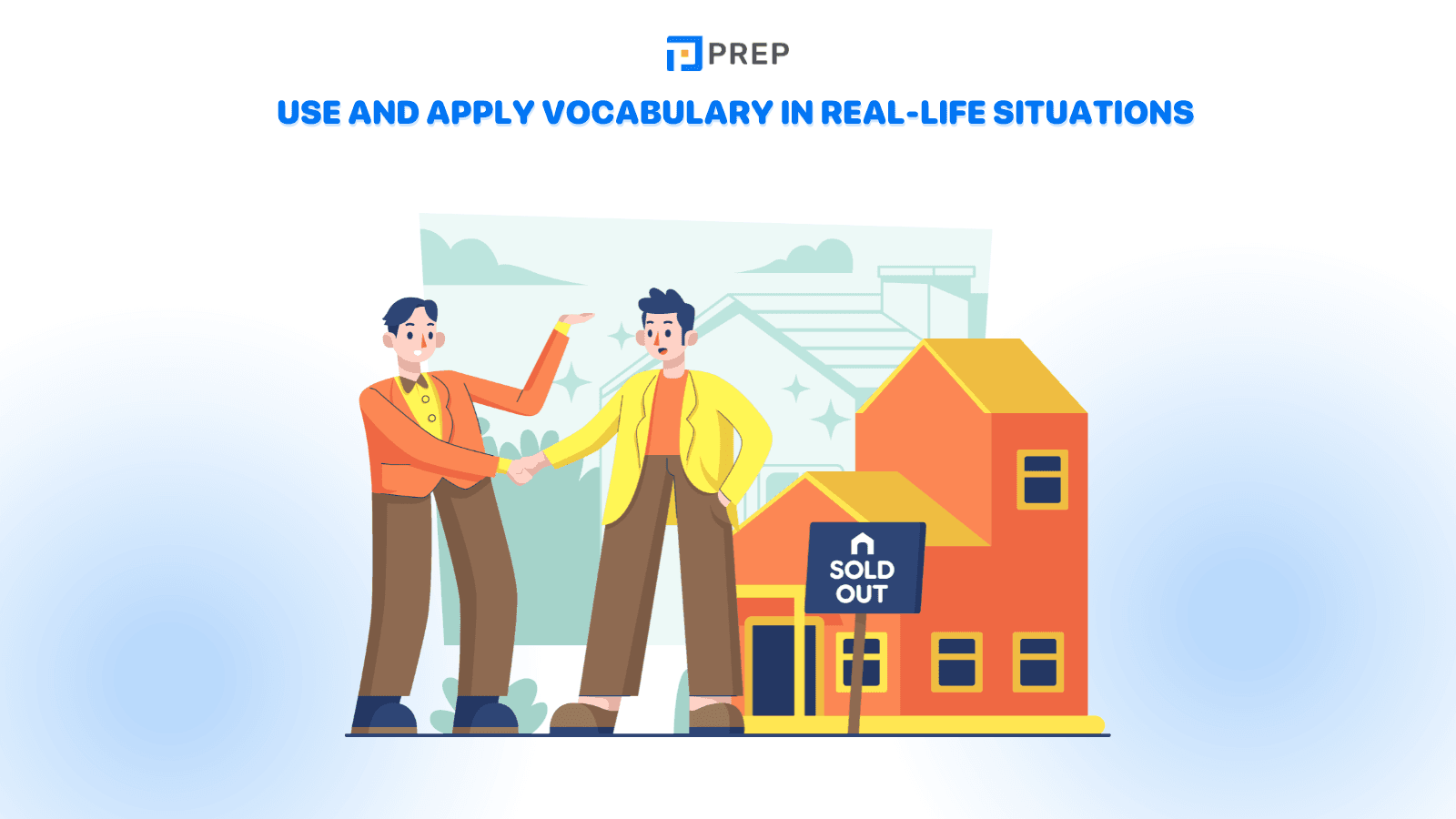
Simply memorizing and taking notes on vocabulary in a superficial manner will result in quick forgetting and lack of value. Therefore, to make the knowledge in advanced English vocabulary books your own, apply them in real-life situations as much as possible. You can write a daily journal in English about the vocabulary topics you've learned in the books. Alternatively, you can come up with topics, use the vocabulary you've learned, and practice speaking in front of a mirror. It's even better if you have a study partner to practice with!
Prep's Virtual Speaking Room and Virtual Writing Room are environments where you can effectively apply your English learning into practice. At Prep, you will have a companion in the form of teachers and AI examiners who provide detailed feedback on your speaking and writing. The detailed feedback covers every sound in pronunciation, analysis of vocabulary and grammar errors, etc., helping you improve your English proficiency rapidly.
3. Consistency and Spaced Repetition
Regular, focused study sessions of 15-20 minutes prove more effective than occasional intensive cramming sessions for building sustainable vocabulary knowledge. Implement spaced repetition principles by reviewing previously learned material at increasing intervals: review new words after one day, then three days, one week, and one month. This scientifically proven approach strengthens memory pathways and ensures long-term retention that supports fluent communication.
4. Reinforce English Vocabulary with Prep
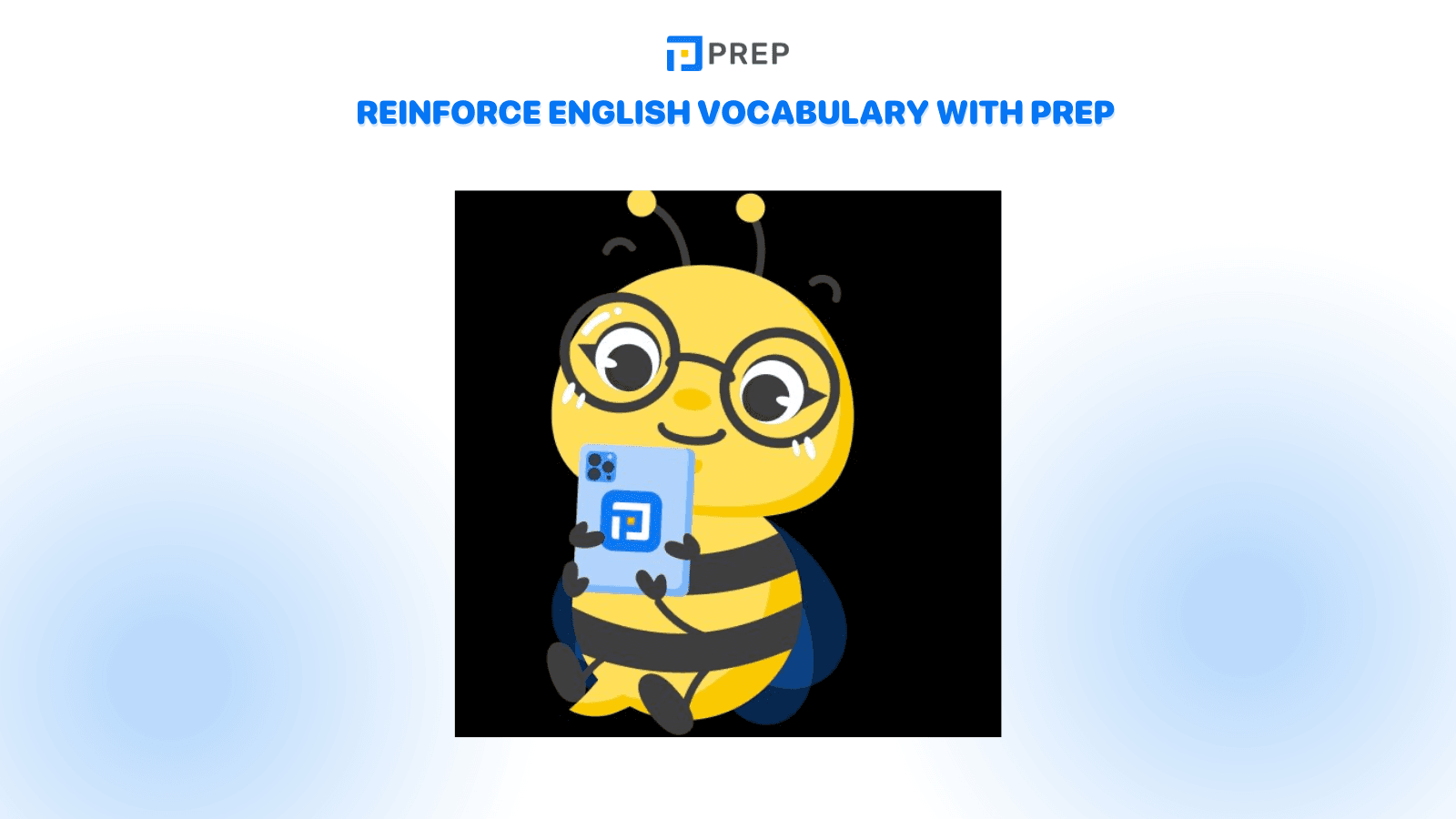
In particular, Prep offers a system of vocabulary courses ranging from basic to advanced levels, covering familiar and academic topics related to the vocabulary provided in the books. Therefore, you can combine learning English vocabulary books with the vocabulary courses at Prep to achieve the best results!
The vocabulary courses at Prep include:
|
Course |
Course Content |
|
Basic Vocabulary |
Each lesson covers a topic, with 10 main topics in this learning section, such as the natural world, daily activities, etc. |
|
Intermediate Vocabulary |
17 lessons cover vocabulary topics related to appearance, personality and social relationships, events, celebrations, houses, etc. |
|
Advanced Vocabulary |
18 lessons include lectures on effective vocabulary learning methods, topics on relationships in life, food and drink, entertainment, culture, and travel. |
V. Conclusion
Your vocabulary development journey represents one of the most rewarding investments in personal and professional growth you can make. The carefully curated english vocabulary books and proven strategies in this guide provide the essential tools to transform your English communication abilities systematically and confidently.
Vocabulary mastery occurs through consistent daily practice rather than sporadic intensive efforts. Each new word learned opens pathways to more sophisticated expression and deeper understanding. With the right resources and effective strategies, you possess everything necessary to achieve your vocabulary goals and unlock the countless opportunities that await those who master English expression.

Hi I'm Chloe, and I am currently serving as an Product Content Administrator at Prep Education. With over five years of experience in independent online IELTS study and exam preparation, I am confident in my ability to support learners in achieving their highest possible scores.
Comment
Premium content
View allPersonalized roadmap
Most read




